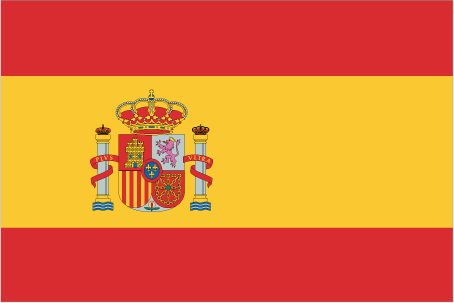
Spain's powerful world empire of the 16th and 17th centuries ultimately yielded command of the seas to England. Subsequent failure to embrace the mercantile and industrial revolutions caused the country to fall behind Britain, France, and Germany in economic and political power. Spain remained neutral in World War I and II but suffered through a devastating civil war (1936-39). A peaceful transition to democracy following the death of dictator Francisco FRANCO in 1975, and rapid economic modernization (Spain joined the EU in 1986) gave Spain a dynamic and rapidly growing economy and made it a global champion of freedom and human rights. More recently the government has had to focus on measures to reverse a severe economic recession that began in mid-2008. Austerity measures implemented to reduce a large budget deficit and reassure foreign investors have led to one of the highest unemployment rates in Europe.
coal, lignite, iron ore, copper, lead, zinc, uranium, tungsten, mercury, pyrites, magnesite, fluorspar, gypsum, sepiolite, kaolin, potash, hydropower, arable land
arable land: 24.75%
permanent crops: 9.29%
other: 65.96% (2011)
47,737,941 (July 2014 est.)
country comparison to the world: 29
composite of Mediterranean and Nordic types
Roman Catholic 94%, other 6%
Castilian Spanish (official) 74%, Catalan 17%, Galician 7%, and Basque 2%
note: Catalan is official in Catalonia, the Balearic Islands, and the Valencian Community (where it is known as Valencian); in the northwest corner of Catalonia (Vall d'Aran),
definition: age 15 and over can read and write
total population: 97.7%
male: 98.5%
female: 97% (2010 est.)
Madrid
parliamentary monarchy
1492; the Iberian peninsula was characterized by a variety of independent kingdoms prior to the Muslim occupation that began in the early 8th century A.D. and lasted nearly seven centuries; the small Christian redoubts of the north began the reconquest al
National Day, 12 October (1492); year when Columbus first set foot in the Americas